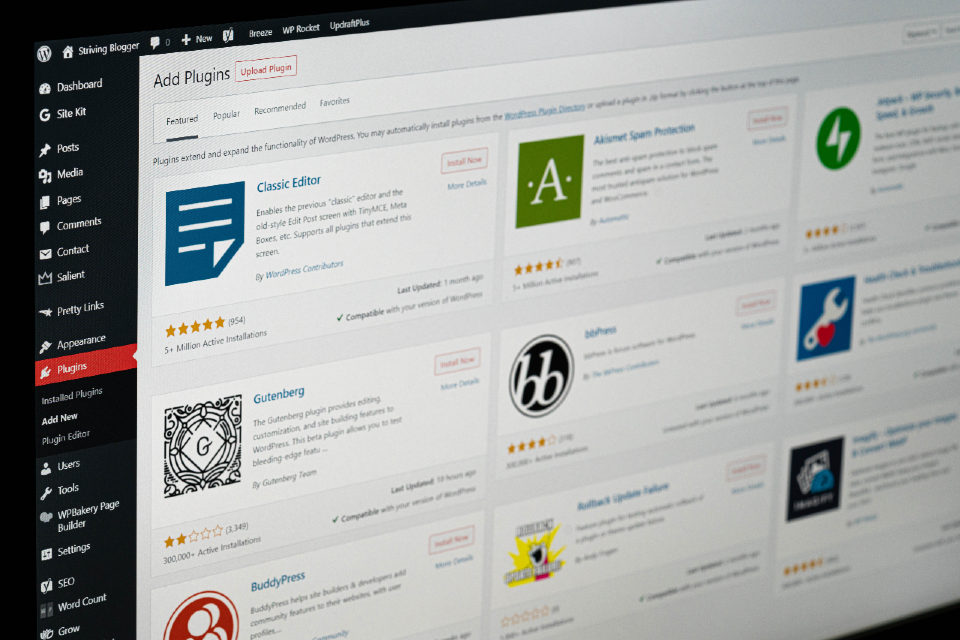A website is often the first point of interaction between a Small and Medium-sized Enterprise (SME) and its potential customers. For digital managers, choosing the right platform – whether it’s WordPress or Wix – is a decision that can clearly impact a business’s online presence. We’ve rounded up the key considerations when making the important decisions…
1. Ease of Use and Flexibility
The chosen platform should offer a user-friendly interface that can be managed by team members with varying levels of technical expertise. For SMEs, where resources are often limited, the ability to easily update content, add new pages, and make basic customisations without needing extensive technical know-how is crucial. Flexibility in design and functionality is also important to ensure the website can evolve alongside the business.
2. Scalability
Scalability is paramount. The platform should be able to accommodate the growth of the business, handling increased traffic and additional content without compromising performance. This means considering not only the current needs of the business but also its future aspirations, ensuring the platform can grow with the brand.
3. Cost-Effectiveness
Budget constraints are a common consideration for SMEs. Digital managers must weigh the costs associated with different platforms, including setup, monthly or annual fees, and any additional costs for plugins or extensions. It’s important to find a balance between affordability and functionality, ensuring the platform offers value for money.
4. SEO Capabilities
Search Engine Optimisation (SEO) is vital for increasing visibility and driving traffic to the website. The platform should have strong SEO capabilities, allowing for optimisation of content, mobile responsiveness, fast loading times, and the ability to modify meta tags and URLs. These features will help the website rank higher in search engine results, an essential factor for online success.
5. Security Features
With increasing cyber threats, the security features of a website platform are non-negotiable. The platform should offer robust security protocols to protect sensitive data, including SSL certificates, regular security updates, and secure payment gateways for e-commerce sites.
6. Integration with Other Tools
Integration capabilities with other digital tools and systems, such as CRM software, social media platforms, and email marketing services, can significantly enhance efficiency. The ability to seamlessly integrate these tools can streamline operations and provide a more cohesive digital strategy.
7. Technical Support and Community
A strong support network is invaluable, particularly for SMEs with limited in-house technical support. Platforms that offer reliable customer service, comprehensive documentation, and an active community forum can be advantageous, providing resources and assistance when needed.
8. E-commerce Functionality
For SMEs looking to sell products or services online, e-commerce functionality is a key factor. The platform should offer a seamless shopping experience, with features such as shopping carts, payment processing, and inventory management.
Whether you go for WordPress or Wix, choosing the right website platform for an SME brand involves a careful evaluation of various factors, from ease of use and scalability to cost, SEO, security, integration capabilities, support, and e-commerce features. By thoroughly assessing these considerations, digital managers can select a platform that not only meets the immediate needs of the business but also supports its long-term digital strategy, fostering online growth and success.
Are you about to embark on a new website project for your organisation? The Digital Marketing Solutions Summit can help!










